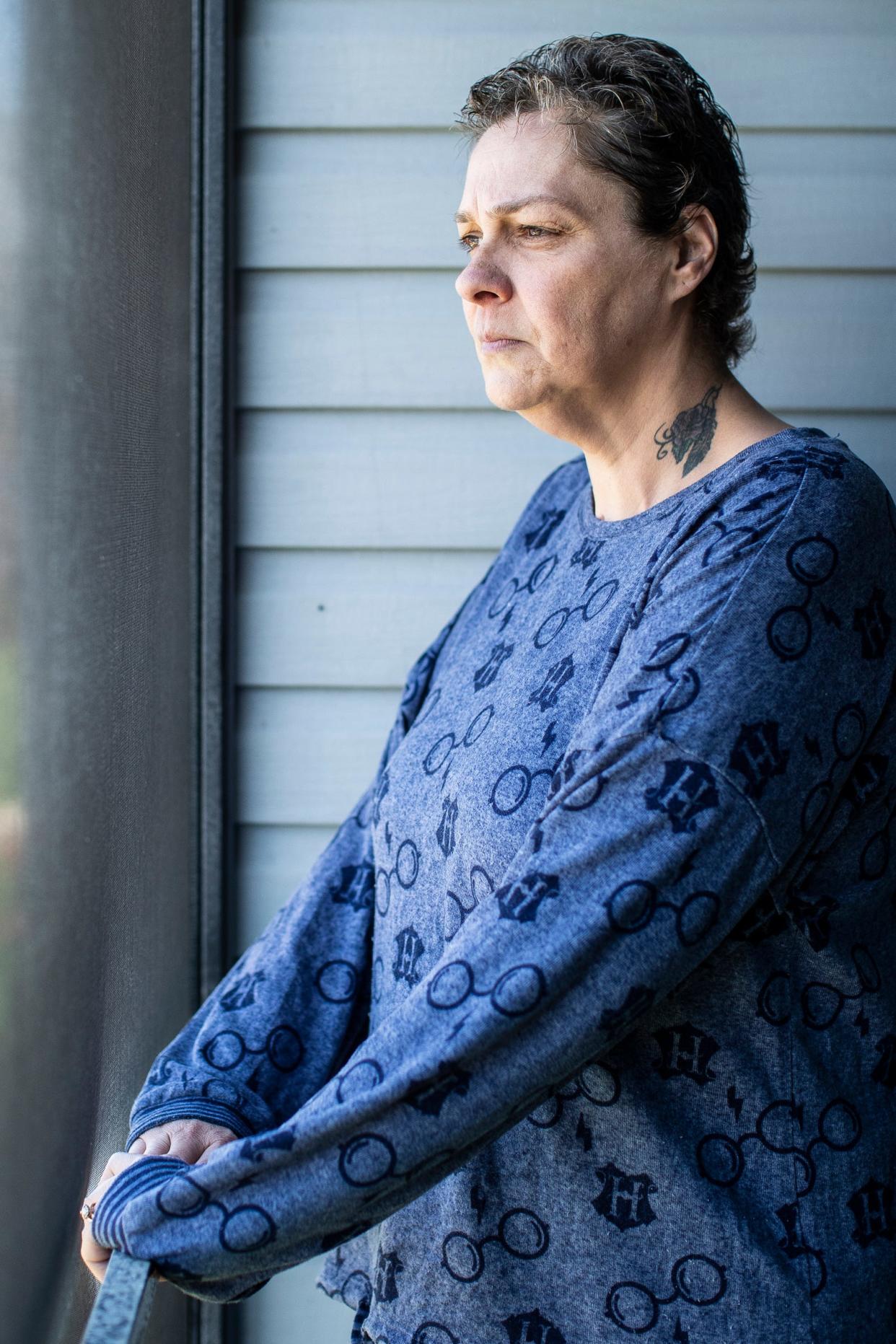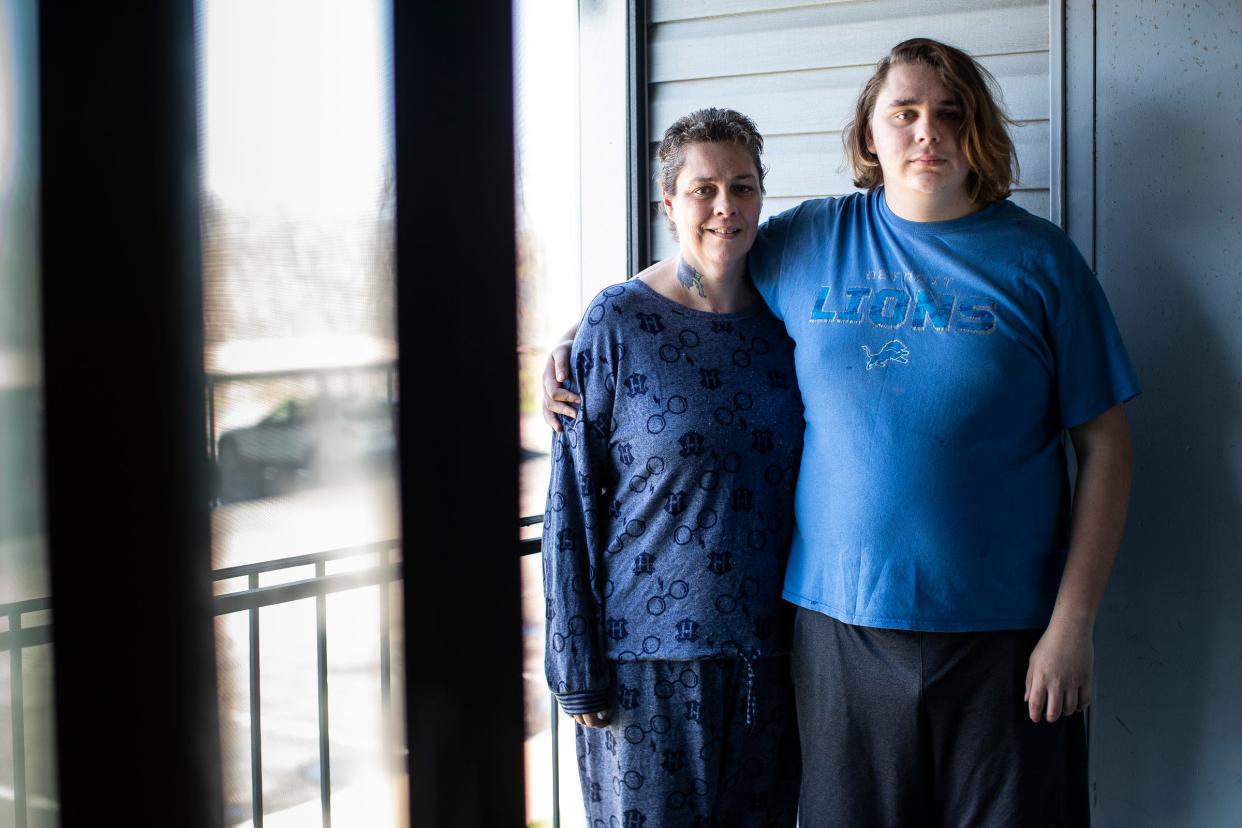Michigan takes foster kids' federal benefit money and reimburses itself for their care
Michigan has been cashing in federal benefit money paid to children in foster care to cover some of its own child welfare costs. It is one of 44 states that received an ‘F’ grade because of the practice from the Children’s Advocacy Institute at the University of San Diego School of Law.
Children are not supposed to pay for their own foster care: That’s the government’s job. But the state has been taking disability benefits as well as survivor benefits and Veterans Affairs benefits meant for children whose parents have died, ostensibly to pay for just that.
Emily Reinig, a consultant who worked on the institute’s report, called the practice of taking foster kids’ benefit money shameful, predatory, and a violation of due process and equal protection rights.
Michigan collects $3.2 million from foster kids
It’s also routine. In 2020, 42 states reported using $251 million in benefits to offset child welfare agency costs, according to a child welfare financing report produced by Child Trends.
Agencies in many states have even applied for survivor and disability benefits themselves without notifying the child or their relatives or passing along the money, according to a 2021 investigation undertaken by National Public Radio and The Marshall Project.
That reporting estimated that 25,000 children are affected nationally; around 10% of children in foster care are entitled to Social Security benefits totaling, on average, more than $700 per month.
In Michigan, the benefit money received by DHHS amounted to $3.2 million in fiscal year 2022-2023. The department says 100% of the funds are being used to reimburse the state for the cost of caring for kids in the child welfare system.
“We interpret that to mean that 0% of the children’s benefits are being used in furtherance of their best interests,” Elisa Weichel, administrative director of the Child Advocacy Institute, wrote in an email to the Free Press.
A spokesperson for the Michigan Department of Health and Human Services said it uses state and federal resources to provide the best possible care for Michigan children, including those in foster care.
"When a child is placed in an out-of-home situation with MDHHS, income or funds available to the child are secured and used to reimburse the public taxpayer dollars that provide payment for the child's care. If the child's total income exceeds the cost of care, the excess is saved for the child," the spokesperson wrote in an email to the Free Press. "This is common practice among many states."
Michigan makes some children pay for their foster care
The practice of taking money from foster kids is not at all new. A 2006 legal paper put it bluntly that “foster care agencies are engaged in the systemic practice of converting foster children's Social Security benefits into a source of state funds.”
The Child Advocacy Institute put out a 2011 report urging states “not to steal from their children.”
“Why should kids with Social Security have to pay for their own foster care?” asked Jill Bauer, a staff attorney at Legal Services in Washtenaw County.
Bauer said Michigan doesn't appear to have a system in place to determine if all of a child’s federal benefits are being used for their care or if excess money should be kept for them.
“My understanding is that the department is supposed to be a payee of last resort,” she said — collecting a child’s money only if no other adult can be found to hold it for them and ensure it’s being used for their benefit. “I haven’t seen that that’s happening.”

It didn’t happen when Jenny Bowden’s son went into state care. The benefits he was receiving after the death of his father — $899 per month — were redirected to DHHS during the nearly six years he spent in the child welfare system, even though his mother was still asked to provide clothing for him. The checks were still being sent to Lansing six months after he returned home.
It’s been almost two years since she was reunited with her son, and Bowden is trying to recoup that money. She needs it. She’s still trying to pay debts she incurred while her son was in care — notably the vehicle she had to buy so she could make her court-ordered visits to him. The Free Press is withholding his name to protect his privacy.
Bowden said thinking about why the state took her son’s benefit money even after he was out of foster care leaves her feeling hurt. “I don’t understand how they can do that to kids when they’re trying to move forward with their life,” she said.
More: Pilot projects will help stop the overreporting of children of color to child welfare
A bill proposes conserving some benefit money for kids
While Congress could prohibit states from taking money from foster children, the issue has not garnered momentum at the federal level. The 2021 investigation galvanized some efforts to close this legislative loophole, with several states passing legislation that helps foster children keep their benefits and others introducing bills.
In Michigan, Rep. Kathy Schmaltz introduced HB 4694 last year, which called for DHHS to use or conserve the benefits in the child’s best interests.
It would mandate that DHHS put an age-based percentage of a child’s benefits into savings for them; at least 40% must be conserved for the child if they are 14 or 15, at least 80% if they are 16 or 17, and 100% must be put away for foster children who are 18 to 20 years old. It would also require children in care to receive financial literacy education.
“If we don't take care of them, they're not going to be successful in life, and they've already had such a tough life,” Schmaltz said. “So why are we making it tougher? ... Just give them some of this money.”
The bill did not come up for a vote last year, but Schmaltz was not deterred. “I'm very confident that we will get this through sooner or later,” she said.
Kids in care don't know where their benefits are going
HB 4694 would also require DHHS to immediately notify the child’s attorney about any application it made for benefits on their behalf or any attempt to become the payee for those benefits. Under current Michigan law, the department can do so without notifying anyone.
Advocates say states keep the practice quiet on purpose, to ensure they can continue using children’s benefit money to reimburse their own child welfare agencies.
“Children are rarely made aware of the fact that they are entitled to these benefits and are rarely, if ever, notified that the state or local jurisdiction is using their money to pay for their care,” wrote Jessica Heldman, associate professor in child rights at the Children’s Advocacy Institute, in an email to the Free Press.
Bowden’s son knew that DHHS was taking his benefit money and using it to pay for his care. But he never saw any of it, and said no unused funds were returned to his mom.
“It makes you feel like they really don’t care about it, or they’re trying to have a good image without having to do the work,” he said.

“We believe that the state is choosing to put its own financial interests above the best interests of the children in its care,” wrote Weichel, “which unfortunately is a message these children probably also get in other ways.”
More: Michigan's child welfare system makes progress toward shaking off federal oversight
Jennifer Brookland covers child welfare for the Detroit Free Press in partnership with Report for America. Make a tax-deductible contribution to support her work at bit.ly/freepRFA. Reach her at jbrookland@freepress.com. Submit a letter to the editor at freep.com/letters.
This article originally appeared on Detroit Free Press: Michigan takes federal benefit funds from foster kids to pay for care
